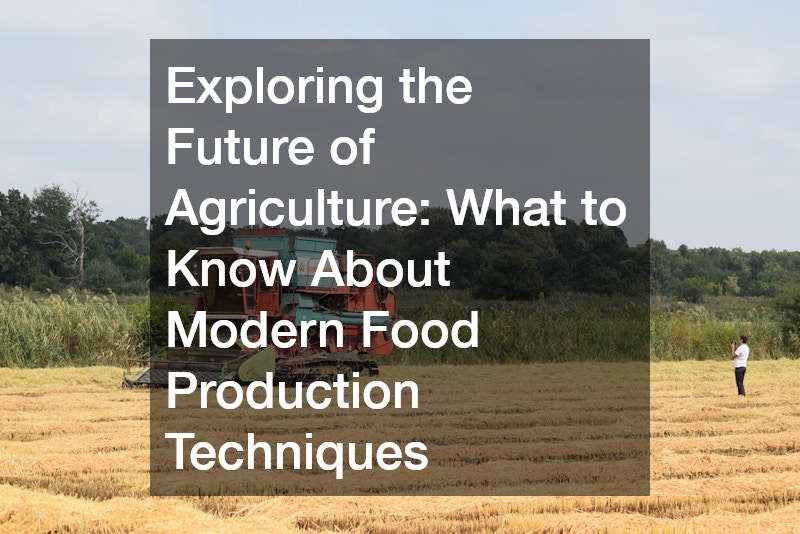As the global population continues to rise, the demand for efficient and sustainable food production techniques has never been more critical. Modern food production techniques encompass a wide range of technologies and practices designed to optimize the growth, harvest, and distribution of food. This article explores various aspects of modern food production and how they contribute to meeting the world’s nutritional needs.
The agriculture industry is undergoing a transformation, driven by technological innovations and a greater focus on sustainability. From precision irrigation to advanced farm equipment and climate-controlled storage, these advancements are revolutionizing how we produce and consume food. Understanding each of these elements is crucial for appreciating their collective impact on the global food supply chain.
Modern food production techniques are critical for addressing the challenges of climate change, resource scarcity, and food security. By leveraging cutting-edge technologies and practices, the agricultural sector aims to increase productivity and reduce environmental impact. This article will delve into the key components shaping the future of agriculture.
The Role of Precision Irrigation Contractors in Advancing Modern Food Production Techniques
Precision irrigation is a cornerstone of modern food production techniques, allowing farmers to optimize water usage and enhance crop yields. Irrigation contractors play a crucial role in designing and implementing these systems, ensuring that water resources are used efficiently. Their expertise in technology and agricultural practices contributes significantly to sustainable farming.
Precision irrigation facilitates targeted water delivery, reducing waste and promoting plant health. This approach is essential in regions facing water scarcity, where every drop counts in producing agricultural outputs. By employing advanced sensors and irrigation systems, farmers can avoid overwatering and ensure crops receive just the right amount of moisture.
Furthermore, irrigation contractors are increasingly incorporating weather data and predictive analytics into their systems. This allows for real-time adjustments based on environmental conditions, further optimizing resource use. As a result, these efforts contribute to more resilient agricultural systems capable of withstanding the challenges posed by climate change.
The Impact of Climate-Controlled Storage on Food Preservation and Distribution
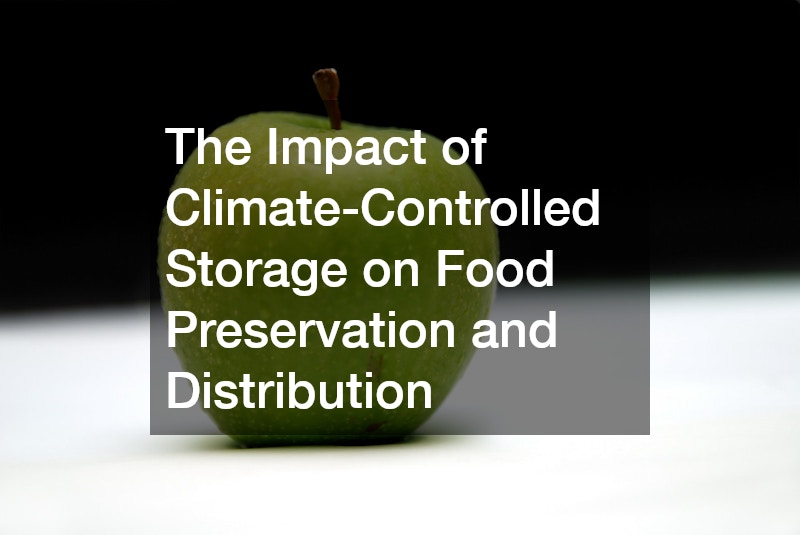
Climate-controlled storage is a vital component of modern food production techniques, extending the shelf life of perishable goods and reducing waste. This technology employs precise temperature and humidity controls to create optimal storage conditions for various types of produce. By maintaining quality and freshness, climate controlled storage plays a critical role in the food supply chain.
Implementing climate controlled storage solutions allows producers and distributors to minimize spoilage and maintain product quality from farm to table. This capability enhances the efficiency of food distribution, reducing losses and improving profitability. It also enables the global export of fresh produce, offering consumers access to diverse food options year-round.
As concerns about food security and sustainability grow, climate controlled storage will become an increasingly important tool for reducing waste. By integrating this technology with modern food production techniques, the agricultural industry can reduce its environmental footprint and improve food availability. The benefits of these innovations are felt across the entire food supply chain, ultimately supporting global food security objectives.
Leveraging Farm Equipment Innovations to Improve Food Production Efficiency
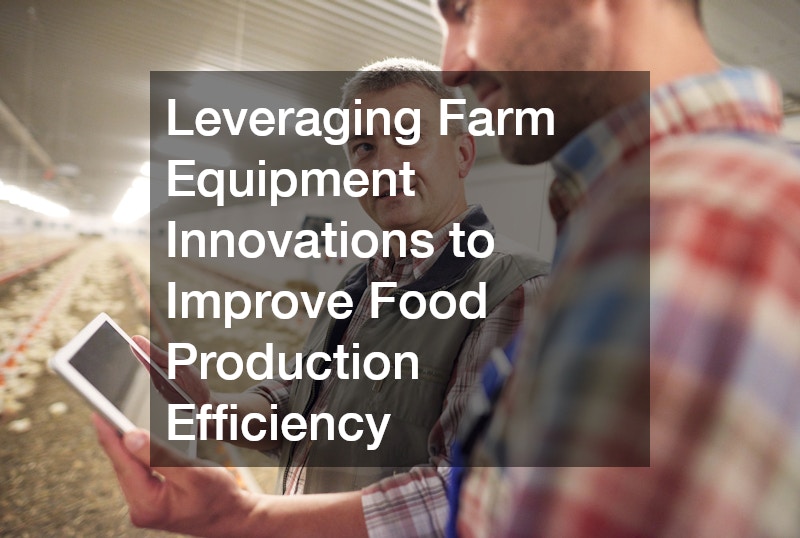
Advancements in farm equipment are revolutionizing modern food production techniques, allowing for increased efficiency and productivity. New technologies such as autonomous tractors, drones, and precision planting equipment have made farming more precise and less labor-intensive. These innovations enable farmers to achieve optimal results with fewer resources.
Farm equipment manufacturers are increasingly focused on sustainability, designing machinery that reduces fuel consumption and emissions. This aligns with broader industry efforts to decrease agriculture’s environmental impact. By adopting cutting-edge machinery, farmers can improve their economic outcomes while supporting global sustainability goals.
The integration of digital technology in farm equipment—such as GPS-guided tractors—further enhances productivity. These innovations provide real-time data, allowing farmers to make informed decisions about planting, fertilizing, and harvesting. As such, they are crucial components of modern food production techniques, driving agricultural advancement and growth.
Why Land Clearing is Essential for Expanding Modern Agricultural Operations
Land clearing is an essential process for expanding agricultural operations and implementing modern food production techniques. It involves removing trees, brush, and other obstacles to create open fields suitable for farming. This process is necessary for developing new agricultural areas and increasing production capacity.
Professional land clearing services utilize advanced machinery to work efficiently with minimal environmental impact. These services ensure that land is prepared for agricultural use without compromising local ecosystems. As a result, farmers can expand their operations sustainably, balancing the need for increased production with environmental conservation.
In addition to physical land expansion, land clearing allows for improved crop rotation and diversity. By converting underutilized areas into productive farmland, agricultural operations can enhance their output and resilience. This practice supports the implementation of modern food production techniques by maximizing available arable land.
How Metal Buildings Are Revolutionizing Agricultural Storage and Production Facilities
Metal buildings are becoming increasingly popular in agriculture for their versatility and durability. These structures offer secure, customizable solutions for storage and production facilities, supporting modern food production techniques. The use of metal buildings allows farmers to protect their equipment, crops, and livestock from environmental hazards.
One significant advantage of metal buildings is their ability to withstand extreme weather conditions, providing reliable shelter year-round. They are also quick to construct, making them an efficient choice for expanding agricultural operations. This rapid deployment capability helps farmers adapt to changing needs and market demands swiftly.
Metal structures can be customized to accommodate various agricultural functions, from storage and processing to housing livestock. This adaptability supports efficient operations and optimizes space usage. As agriculture continues to evolve, metal buildings provide a flexible infrastructure solution aligned with modern food production techniques.
The Future of Enhanced Farm Security
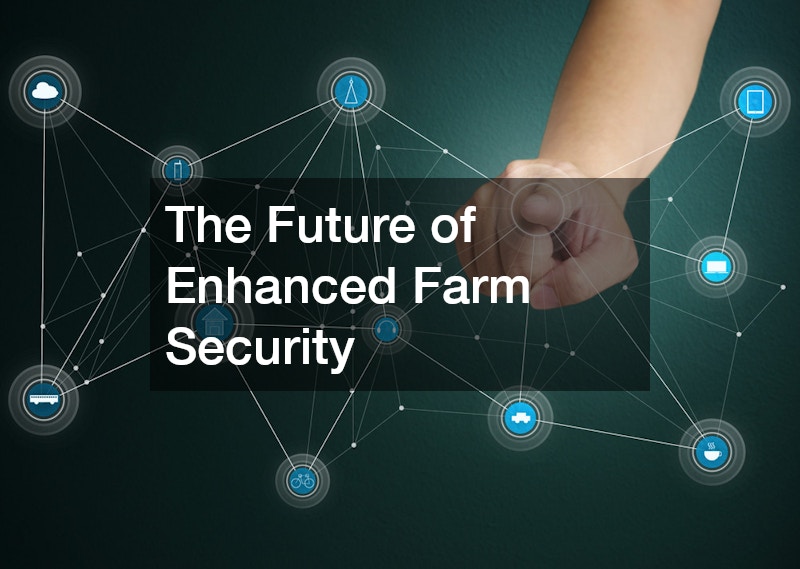
Enhanced farm security is becoming increasingly important as modern food production techniques evolve. Protecting agricultural assets—from crops and livestock to equipment—is crucial for maintaining productivity and profitability. Access controls, surveillance systems, and fencing are integral components of a comprehensive security strategy.
Advancements in technology have enabled the development of sophisticated security systems tailored to agricultural needs. These systems offer real-time monitoring and alerting, allowing for quick responses to potential threats. By investing in security technologies, farmers can safeguard their operations against theft, vandalism, and natural disasters.
Security improvements also extend to data protection, as digital technologies become integral to agricultural operations. Safeguarding sensitive information and operational data ensures that modern food production techniques remain efficient and effective. As the industry adopts more digital tools, cybersecurity will play a vital role in protecting agricultural investments.
How Agricultural Propane Services Are Supporting Sustainable Farming Practices
Agricultural propane services are crucial for supporting modern food production techniques, particularly in their efforts to enhance sustainability. Propane is a clean-burning fuel used in a wide range of agricultural applications, from powering equipment to drying crops. Its versatility and low environmental impact make it an attractive choice for farmers seeking sustainable alternatives.
The use of propane reduces greenhouse gas emissions compared to traditional fossil fuels, helping farmers minimize their carbon footprint. Additionally, propane-powered equipment often requires less maintenance, resulting in lower operational costs. These benefits contribute to the ongoing shift towards sustainable and economically viable farming practices.
Agricultural propane services also play a role in energy independence for farmers. By providing a reliable source of fuel, they help farmers maintain control over their operations and reduce dependency on external resources. This capability is crucial for implementing modern food production techniques that prioritize resource efficiency and sustainability.
Enhancing Food Production with Advanced Grader Blades and Farm Equipment
Grader blade manufacturing companies are at the forefront of advancing modern food production techniques by providing essential farm equipment. Grader blades are used to level and grade fields, creating optimal conditions for planting and harvesting. Their precision design ensures consistent results, improving crop yields and operational efficiency.
Advanced grader blades from a reliable grader blade manufacturing company are crucial for soil preparation, a foundational step in successful farming. By evening out the terrain, they enable more uniform crop growth and enhance irrigation efficiency. This precision is vital for maximizing land productivity and supporting sustainable agriculture practices.
The innovations in grader blade technology are complemented by advancements in other farm equipment, such as tillers and harvesters. Together, these tools contribute to a comprehensive approach to modern food production techniques, enhancing efficiency and output. The integration of these technologies signifies a promising future for the agricultural sector.
How Agricultural Construction Services Are Shaping the Future of Farming Infrastructure
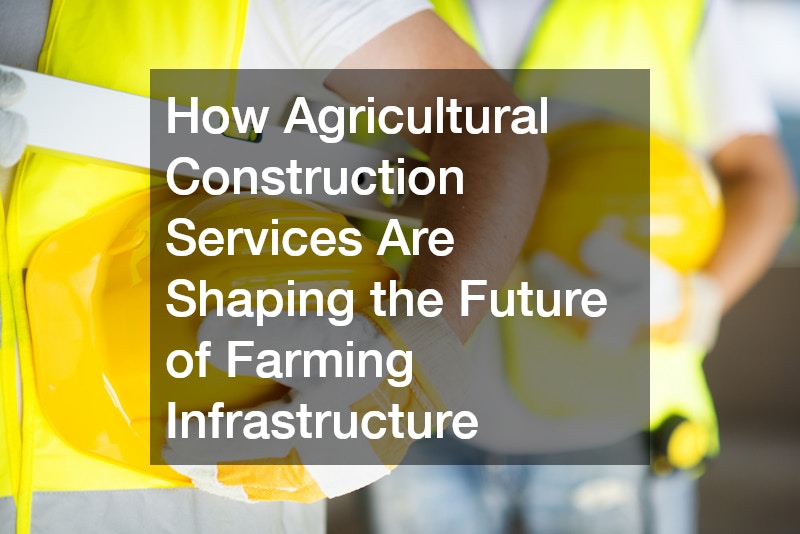
Agricultural construction services are pivotal in developing the infrastructure needed to support modern food production techniques. These services encompass the design and construction of facilities, such as barns, greenhouses, and processing plants. By building efficient and sustainable infrastructures, they lay the foundation for productive agricultural operations.
The demand for modern agricultural infrastructure has led to innovative approaches in construction, focusing on sustainability and resilience. These innovations include eco-friendly building materials and energy-saving technologies. By incorporating these elements, agricultural construction services contribute to reducing the environmental impact of farming.
Collaborating with agricultural construction services ensures that farms can meet the demands of modern food production techniques. By investing in infrastructure development, farmers can improve their operational efficiency and capacity. This long-term investment is essential for maintaining competitiveness in a rapidly evolving industry.
The Importance of Pest Management: Working with Local Exterminators for Healthier Crops
Pest management is a critical aspect of modern food production techniques, ensuring healthy crop yields and minimizing losses. Local exterminators play a vital role in controlling pest populations, using environmentally friendly methods to protect agricultural outputs. Their expertise allows farmers to address pest issues efficiently and sustainably.
Effective pest management involves a combination of preventative measures and responsive treatments. By working with local exterminators, farmers can implement integrated pest management strategies that reduce reliance on chemical pesticides. This approach not only preserves crop health but also protects the surrounding ecosystem.
Incorporating pest management into modern food production techniques supports the goal of sustainable agriculture. Healthy crops lead to higher yields and better-quality produce, enhancing food security. By prioritizing pest control, farmers can maintain productivity while adhering to environmental and health standards.
How Modern Food Production Techniques Benefit from Strategic Land Clearing
Strategic land clearing is an important aspect of modern food production techniques, providing the opportunity to expand and diversify agricultural activities. By clearing land for farming, producers can increase their output and implement crop rotation practices. This process supports long-term soil health and enhances overall productivity.
Land clearing must be conducted thoughtfully to balance expansion with environmental considerations. By employing best practices, such as preserving natural habitats and preventing soil erosion, farmers can achieve sustainable land development. This strategic approach ensures that cleared land can be used effectively without causing ecological harm.
Collaboration with skilled land clearing professionals helps farmers achieve the best outcomes. These experts utilize advanced machinery and techniques to prepare land efficiently and responsibly. By integrating strategic land clearing into their operations, farmers can fully utilize modern food production techniques to their advantage.
The evolution of modern food production techniques is fundamentally reshaping the agricultural landscape, introducing a new era of farming that focuses on sustainable practices and increased efficiency. These innovations offer much-needed solutions to the challenges posed by growing global food demands while addressing environmental concerns. By incorporating advancements across a wide range of areas—such as irrigation, climate-controlled storage, equipment, construction, and pest management—the agricultural industry is poised to significantly improve both its productivity and environmental stewardship.
As the world’s population continues to grow, the agriculture sector must continuously adapt to meet the demand for food. The integration of cutting-edge technologies with traditional agricultural practices is vital for ensuring that farming remains productive, viable, and sustainable. By embracing innovative approaches—such as precision agriculture, renewable energy solutions for farm equipment, and sustainable construction practices—the industry is well-positioned to address future challenges and meet global food demands.
In addition, global collaboration across industries will be essential in realizing these advancements. From working with irrigation contractors to engaging pest management professionals, the interconnectedness of the various sectors involved in food production will be key to creating a sustainable and resilient agricultural future.
Ultimately, modern food production techniques are not just about increasing yield; they are about transforming the entire food production system to be more efficient, sustainable, and adaptable to the challenges of the 21st century. As these techniques evolve and gain wider adoption, they provide a roadmap for future agricultural development, offering a sustainable and productive way forward for global food production. Through continued innovation, collaboration, and the integration of various fields, the agricultural industry can work together to ensure food security for generations to come.

